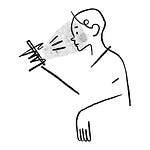The next few episodes will feature a special series called A Drink With a Friend. Tsh talks with her longtime friend and fellow writer Seth Haines, where over drinks they'll discuss what's meant by "sacramental living." What the heck does that word mean? How is it different than just being religious? And what does it have to do with our day-to-day life? A lot, it turns out.
Seth's website and newsletter
Tsh’s website and newsletter
The Thousand Autumns of Jacob De Zoet by David Mitchell
The Inspector Gamache series by Louise Penny
Order Shadow & Light and join the Advent Community
Browse Tsh’s recommended books
Pay what you want for Tsh’s audio workshop, Create Your Rule of Life
Tsh: This is The Good List. I'm Tsh Oxenreider.
In this episode, I'm joined by my friend, Seth Haines, who’s actually going to be joining me for the next couple of episodes because we're going to be doing a series of conversations where we're going to be talking about a topic we both really like a lot. If you already like what I talk about here on The Good List, I think you're going to like this topic, too.
Seth, before we get into the topic itself and why we both care about it so much, let's talk a little bit about you. Why don't you tell the listeners a little bit about yourself?
Seth: All right. First off, I can't imagine anyone I'd rather be having this conversation with than you, so thanks for doing this. This is going to be a fun time.
Tsh: It’s going to be fun.
Seth: Yeah, I can't wait. I'm kind of a Jack of all trades. I live in the Arkansas Ozarks, which I think are the Ozarks proper, with my wife, Amber and four boys. I'm an attorney, a communications consultant, and do a little bit of marketing. I'm a writer, as you know. I've partnered with a lot of authors over the years. In fact, I think at last count, it was somewhere around 25 books that I've worked on in the last four years. I've written two of my own books. One came out this year, it's called The Book of Waking Up, Experiencing the Divine Love That Reorders a Life. It's all about the topic that we're going to be talking about really, sacramentality. I love stories. I love podcasts. I love your work. I'm really excited to be here.
Tsh: I don't know if my book is one of those 25 you count, but you edited my book, At Home in the World. I basically had such a great experience working with you on that, that I've said, I want to work with Seth on every book I write ever since then. You do really good work and it is. I had no idea who'd done twenty-five books. That's a lot of books.
Seth: Yeah. I had to count them up last weekend and it was actually insane. I was pitching a project and they said, hey, how many books have you worked on in the last four or five years? And so I started counting them up and I did include yours on that list. I actually put yours on a very short list when I pitched the project and said, hey, look, I worked on this travel memoir, and the reason I did it was because it was actually a really good book and a lot of fun to work with you.
Tsh: That's very cool. I love it. You are a Jack of all trades. I forget you do all the things you do. We are going to call this conversational series that we're doing, A Drink with a Friend, and there's a number of reasons for this. One, we just like the idea of having drinks with friends. There's something also about this idea of as we end a work week where we're all just decompressing by way of wanting to talk with friends, that's sort of the vibe we're going for in this conversation. I think particular, it's especially poignant, in the year of our Lord 2020, even if you live in basically the suburbs and you have to drive to go anywhere, I think we all long for a sense of neighborhood, community pub likeness when we get to talk with friends after just a week of a lot of adulting and a lot of just doing what we have to do. This conversation we're going to talk as though we're just across a bar table or a coffee table, just talking about the week and what's on our mind, but it might surprise some of Seth's readers that we're calling it this because of your work, Seth, in the space of sobriety and addiction. Seth, talk a little bit about what this idea means to you.
Seth: Yeah. Particularly when we're talking about sobriety, one of the things I always tell people is, sober people still like to drink, too. I mean, we have to drink, too. Everybody has to drink, right? Now, our choices may differ. We may drink things that are less inebriating as we shall say less potent maybe than we would have at one point in our lives, but we still like to have drinks with friends. We still love to have drinks with friends. In fact, over the last probably three years, I worked pretty much exclusively out of this little coffee shop right before COVID. One of my dear friends there was then Maisie Cochran, and Maisie is an editor for a publisher. She publishes and edits fiction. She is a blast to hang out with and to talk with and we would just put heads down and work all day. Then at the end of the day, we would just order a coffee and sit down and talk about our work. I would talk about my work that's primarily in faith spaces, but not exclusively. She would talk about her work that was primarily in secular spaces and non-faith spaces. We found that even as we talked and laughed and shared life that our work actually got better just because we were riffing off of each other and sharing ideas that we wouldn't have had on her own. I think the idea of sharing drinks with friends and sharing ideas with friends and making meaning with friends is super important. Particularly as you say, in this year of our Lord 2020, which is the year of chaos.
Tsh: I really like that those who of us who maybe don't know much about sobriety because it's not really been, well of course, the way you frame it as we all are attached to something. That's a whole other episode we can get into, but you are definitely bringing to light some things that I just don't think about very often. I'm really glad that you are someone in my life that reminds me that sobriety is not really about drinking or not drinking. It's about where our attachments lie.
Seth: I think that's, for me, that's been the thing that has really freed me up, opened me up is to say, look, sobriety is not about to drink or not to drink. That is not the question. The question is where are attachments oriented? For me, my primary attachment is to God and to the divine love through Christ. I have friends who don't orient their primary attachments that way, but to remain sober, they have to orient their attachments first to things that are more stable, more solid. Things that don’t drag them down into the well of addiction, so to speak. For me, sobriety is all about primary attachment, not about drinking or not drinking. That is why I can say, that I like to share drinks with friends, even though my drink choice today lacks a little bit to be desired.
Tsh: Well, that's a good segue into what we're going to be drinking today. What's in your cap right now?
Seth: This is super unfortunate that our first series, our first episode with this series, of drinks with friends, I'm drinking a Propel electrolyte water beverage. That's literally what the bottle says. It's the grape version, which means it's probably super healthy for me. I haven't really had any water or electrolytes all day today and I have to go workout. And when your body works out, when you're going to move it in a way that is sacramental, as we'll talk about, I'm sure at some point, you got to have water and electrolytes, so that's what I'm drinking. I'm sorry it's not better, but what are you drinking?
Tsh: It's good. I actually liked that you went lowbrow for our first one. I'm drinking, it's called hot cinnamon sunset tea by Harney and Sons. If you have listened to this podcast before you've heard me talk about this. It is a tea I like, it makes me feel a little fancy. It's caffeinated, but not heavily so, and we're talking in the afternoon and the afternoon is when I need a little tiny bit of a boost, but not coffee because that will not go well because I'm 43 now. I just can't drink coffee past noon anymore. Tea is my middle ground. This tea also allows me to pretend like it's fall, even though it is fall, but I'm talking in Texas and the high yesterday was 96 degrees. I'm willing the weather to go down by drinking fancy cinnamon tea so that at least tastes like fall in my mouth. It's not going to feel like it on my skin.
Seth: Yeah. That's unfortunate that it was 96 degrees outside. I'm sorry for that. That's a wreck.
Tsh: It's a mess. It's not good. October, when we're recording this, is a tease around here because you think it's going to be nice and chilly when you wake up and it's just not.
Seth: This is our first day where it dropped down into the sixties and I'm not going to lie to you. I put on the sweater, even though it's still a little warm for the sweater. I couldn't help myself. I walked outside in the sweater today and feel fall coming. Maybe I need to get some of that tea. I don't have any cinnamon tea.
Tsh: I dropped Tate off at her friend's house this afternoon. She's wearing athletic shorts and a sweater because she wanted to wear a sweater. I told her, did you pack a t-shirt because you're going to feel ridiculous. She’s like, yeah, I did. I want to pretend like I can wear a sweater anyway.
Seth: Totally.
Tsh: Okay. Let's get into the heart of our series here. The idea of living sacramentally or really just sacramentality. I think for this first one, it's best if we just talk about what the heck we even mean by that? Like what does this word mean? Because we're going to be talking about it for quite a while and yet if we just keep using it without actually defining it well, people are going to be confused. I think partly because this word sounds somewhat churchy or intangible, just this adjective and it's a broad topic actually, but you and I have grown to appreciate this idea so deeply in our lives, especially the past few years in both offline and on. Seth, I think you should start us off with just explaining a little bit more about what we mean when we use the word sacramentality and sacramental. What do you mean by that?
Seth: This is really one of my favorite topics. One of the things that I really enjoy talking about the most, there’s this old passage from the scriptures and it was actually a passage that I first heard in the fourth grade at All School Mass at Immaculate Conception Catholic School in Fort Smith, Arkansas. It was the responsorial song. I'd never been to a mass before. I was a little boy and I'd had no idea what I was getting into. The religion teacher who knew I was Baptist at the time said to me, we're going to have this responsorial time and there's going to be a person at the front and they're going to read some scriptures and then you're going to respond and this is what you're going to say. What I was supposed to say was, “I believe that I will see the goodness of the Lord in the land of the living.” So, Psalm 27:13, and it's one of these responses that haunted me my whole life. I’m maybe a little bit prone to melancholy. I like to wear dark colors. I like dark comedy, really weird sort of dark science fiction. This idea of the goodness of God in the land of the living is sort of a foil to my natural bent. When I talk about sacramentality, that's really what I mean, that, that God has created good things and put them in the world to draw us into his goodness. I actually wrote about this in The Book of Waking Up. If it's cool, I want to read a little bit.
Tsh: I want you to read it. I want you to read a lot of it.
Seth: Okay. I won't read a lot of it because I'd get carried away. I'd read all day. This is from passage 21 in the book, which is on page 22 or 23.
“Pleasure. What is it but an icon, a portal meant to draw us into the life and love of God. This is a poor man's working definition of the $10 word sacramental. As Alexander Schmiemann put it in his book, Eucharist, Sacrament of the Kingdom, God's creation has a certain sort of sacramentality. He wrote, ‘For the world was created and given to man for conversion of creaturely life, into participation in divine life.’”
To me, that's what it means. That's what sacramentality means. We recognize the stuff of earth and how it's meant to draw us into union and connection with something bigger, something more divine.
Tsh: For the layman, or maybe I should say the person that maybe is listening that isn't super, I guess I could say faith oriented or a Christian or something. Could you break it down even a little bit more and explain what you mean in gritty cerebral, I mean, not cerebral terms.
Seth: Yeah. For me, sacramentality has got zero to do with whether or not you ascribe to my faith. I think you can still have a sacramental outlook. One of the things that I know that we both love about literature is that it tackles transcendent universal themes, right? Good literature goes there. It doesn't just look at a one particular story arc, but the good story arcs really do deal with a bigger transcendent themes. And every time you look at those transcendent themes in really good literature, what happens, you're always mucking around in the messy, concrete parts of life, right? It's conversations shared over a good meal, or it's a journey that takes your body to walk a thousand miles to Mordor or whatever. It’s the gifts given to you along the journey.
I think in any of these settings in literature when you're dealing with these transcendent themes, like the tangible stuff of the story that draws you into that universality or into that big theme, those are the sacramental themes. I think if you're a complete atheist, you can say, look, there's something bigger. There's a bigger, more transcendent current in the world. As I navigate that current, I get all these good things along the way. They draw me deeper into that current. They help me to realize that I'm not alone. They help me to realize that I'm connected to others, that I'm connected to nature, that I'm connected to people. It's those things, it's the apple, the bread, the wine, if you can drink wine, the friendship, it's sex, it's children, it's the pine cone that falls unexpectedly at your feet. It's the turning of the leaves, these things that draw us into the bigger story. These are the sacraments of the world that sort of draw us into that transcendence.
Tsh: And I think even to come full circle, this idea of calling this series of conversations, A Drink with a Friend, I think the act of conversation with a friend is about one of the most sacramental things that we have grown to appreciate this year in 2020 when it's so rarely happens now, that we are reminded of our commonality and our otherness, and what we're really here for, which is not, it's not what we think it is most of the time, whenever we are doing something as simple as having a drink with a friend.
Seth: I think that's one of the things that you've been so good about over the years, just to brag on you a little bit, because I really like this about you. It's really easy to get sucked into all kinds of stuff, you know, stuff. Status or money, or even how much you travel or even what kind of car you drive. I know those are shallow things or what kind of clothes you wear and what your style is, how many Twitter followers you have, all of these things. I think all of a sudden, at least for me this year, and you know, I try to be pretty aware and mindful of those things, but I think even as the pandemic hit and I sort of moved into my own isolation, like we all did, I looked up and said, huh, those things really aren't doing anything for me during this pandemic. And it really did ground me back into stuff that matters.
Tsh: Yeah. I think this pandemic, if it's taught us anything, it's taught us, what do we actually need? And what is it we truly want when it comes down to it? Because those things that we can still connect with, like social media metrics, gosh, those don't really satisfy that much and they don't really say much about what life is or why we are here. To me, this will be a future episode as well, but things like social media metrics to me are almost about as polar opposite of sacramentality as you can get, that we are aware of in our modern age, our postmodern age.
I like that you brought up literature because we'll, we'll talk about that more later, but there's a poet named Elizabeth Barrett Browning that a lot of people know. She is a widely read, 19th-century British author. I remember reading her a lot when we did do our backpack around the world, our backpacking travels around the world, and she's got this quote that is probably her most famous and it’s that,
“Earth crammed with heaven and every common bush a fire with God, but only he who sees, takes off his shoes, the rest sit around and pluck blackberries.”
If I could get a pull quote about what sacramentality has meant to me over the years in two sentences, that would probably be it. It's this idea of choosing to see. And that that seeing almost, if you're truly seeing, you're going to take off your shoes because you can't not. That's what I have in mind and I know we're getting a little theorial and not so concrete, but as we move into more tangible topics like social media, like working out, like parenting, I don't know, to me a really a helpful way for me to think about it is, is this causing me to take off my shoes or is it causing me to want to go and pluck blackberries? Whatever version of that is of 2020, is it causing me to want to scroll Twitter? Is it causing me to want to stop and read poetry?
Seth: There's this poem that makes me think of now, man, we're going poetry already. How are we doing this?
Tsh: Because we’re us, and we’re big nerds.
Seth: It didn't take us long. There's this E.E. Cummings poem that starts, "I thank you God for most this amazing day.” At the end of this poem and it's called I Thank You God For Most, at the end of this poem, he says, how could seeing, hearing, tasting, breathing any? If you use any of these senses, how can any of us that do that, who are lifted from the earth doubt, the unimaginable capital Y, You? How could any of us doubt the unimaginable You? What he's saying is, if you can use your senses, if you can see, if you can breathe, if you can taste, touch, hear, then how in the world could you not but experience God in the world around you, right?
I think a lot about when we were actually in Tuscany together, a group of us and, and there was the jasmine, those jasmine bushes that were all along the wall. And you get out of the van and it like punches you in the face and smelling that, the goosebumps raise on your arms and that tingle in the back of your brain. If you experienced that, how could you not know something of transcendence and the world around you, if you can eat the gelato that literally makes your eyes roll to the back of your head and makes you want more, more and more, how could you not say that there's something really transcendent in this world? To me, that’s sacramenatlity.
Tsh: The official term, from the capital C church is that “a sacrament is an outward sign of an inward grace.” This is why the Catholic church has seven official sacraments yet claims, admits that the world is full of sacraments because God reveals his nature in all sorts of ways inside and outside the church. What you just said, I think hints at the thing you and I have talked about before, which we can get into more later is this idea of beauty and this idea of beauty being the thing that actually draws us to truth instead of maybe the other way around. Do you have anything you want to say about that especially in this year and our, I don't know, as we've all quarantined away from just getting to do what we want and are forced to reckon with the stuff in our lives.
Seth: Yeah. I mean you and I have talked about this a lot, right? This idea that there's an apologetic, a way of arguing faith that is a bigger than just facts or Bible verses or whatever, it's this emotional apologetic. It's that you can't help again, going back to Cummings, you can't help but see and smell and hear and breathe in the fact that there is something transcendent bigger than you operating in the world around you. For me, in my spiritual journey, I can just say beauty has always been the thing that's pulled me farther and deeper in. It's been the thing that has anchored me. When people say, hey, your interpretation of the scriptures is wrong, or, hey, you should think this way, or you should think that way, or in our age, outside of religion, when it's like, hey, those facts that you believe aren't really facts, they're false. And both sides are saying that to each other, there's gotta be something bigger that holds me personally, or else I'll just go into despair. Right? And for me, that thing has always been the beautiful, the things that are good and true and beautiful, which is obviously not my phraseology or yours either. But the beautiful there, the beauty, that's the thing that's always captured me and held me and said, okay, you are moving to something bigger, to something more transcendent. I look for the beauty in the world around me as much as I can.
Tsh: I think beauty is one of the few things, maybe one of the only things I can think of that actually doesn't really serve a concrete purpose. Like the sun could set in an nonverbal way, it could have been done in a some sort of similar way as some beige cubicle, but it's beautiful and it's been happening for a millennia, and yet it still stops us in our tracks, a sunset. And so to me that has to, that can't not be some form of sacrament because there's no other purpose for it other than the point to the divine.
Seth: I think it would be interesting if you tried to write a short story in which everything happened in the most unsacramental way possible. The sun going down is like being in a cubicle on a dimmer switch. Like it just devs down in the most boring way possible.
Tsh: Oh my gosh. That sounds awful to read. That's funny because you wrote, I was just reading something you read, or you wrote on your blog about reading being a form of sacramentality. And so to me, I would be forcing readers to do the opposite of what I want them to do with my writing.
Seth: Yeah. But maybe it would expand our imaginations for really how beautiful the world is a way around us, like in that sort of almost parody satirical way of saying, hey, here's how boring it could be. Here's how good it is, and in fact, as we're riffing now, as we're having drinks with friends, I think about how everything seems so dark and polarized and angry right now, particularly in social media. And I just think, man, there is so much goodness in the world and we are so blind to it because we're so taken with all this rage and vitriol and polarization.
Tsh: Another definition I can think of with sacramentality, and this was the one that would make my kids eyes roll is that which builds character in us. I say that because whenever I bring something up to my kids and they ask, but why, and there's not really any other good reason other than because it's a good for you is because it builds character because that's what Calvin's dad says in Calvin and Hobbes. Put on a sweater instead of turning on the heat because it builds character. To me, that's what I think of with so much of the sacrament of life that we're choosing to ignore by scrolling Twitter instead of stopping to read a poem, is that those things that are sacramental are what they are because they build character in us and so therefore they're good for us. You know, I'm a high school teacher, English teacher, and I've come this year to feel much more confident in telling my juniors and seniors in high school, why do we have to read Saint Augustine's confessions? I had them read that. That's a big book. He goes on and on, his writing is really poetic. And my answer finally, I felt good about saying, because it's good for you, because it builds character. And of course, when you're 16, 17 year old, you roll your eyes and that's okay. I just decided, you know what, I'm not having them read it for their 16 year old self I'm having them read it for their 36 year old self. So in 20 years they will thank me, that they were forced to read it and will probably want to read it again.
That's what I think of when I think of living sacramentally now. It's not necessarily the easy thing to do. It's not always easy for us to remember to stop and look at the sunset, but it is the good thing for us. It's the eating the vegetables for us.
Seth: Love it.
Tsh: The plan is in this series A Drink with A Friend, is that we're going to talk about the different ways life is sacramental. Not because we have all the answers or because we know what we're talking about, but because it's true for all of us, it builds character in all of us, you and me, both Seth, but also those listening and because it's good for us to remember. It’s good to remember at the end of a work week to sit down, to have a drink and to remember what sacramental, what is the beauty in our lives? What's the mystery in our lives? That's what we're going to do for the next couple of episodes. Since this is still The Good List, I think it'd be fun for each of us to share one thing, habit, idea, or work of art that's currently making our life better, which really does tie in well with the idea of a drink with a friend. Seth, I would love for you to start us off sharing with the listeners and with me, what you're into right now.
Seth: Well, you know, that I love novels and you know, I think you know, that I love David Mitchell, who’s this British author. He is a fiction author, but as his career has unfolded, he sort of messes around tinkers around in this idea of magical realism where, or almost science fiction-y, sort of twisty real fiction. It's interesting stuff. All his novels connect, in fact, which I think is brilliant. Some people have described this as the Marvelilization his literature and they don't like it, but I for one nerd out on it and perhaps that's, I like comic books and I like Marvel. I don't see that as a bad thing. I don't know who knows. But currently, he just released a book but it connected back to an older book of his that I had not read. The older book was called The Thousand Autumns of Jacob De Zoet. It's about a Dutch trader who finds himself in Japan and he falls in love with this woman in Japan who who's actually working with a fellow Dutch doctor. It's this story of forbidden love and I won't go into the details too much because it's so worth the read. But what's really fascinating to me is that that doctor, Dr. Meritus is his name, actually ends up as an eternal character of good in the book, The Bone Clocks and later Slade House. It's super fun to hear him riffing on medicine and being a doctor and trying to save people and the nature of being an eternality and all of these things. I was like maybe a hundred pages in before I was like, wait a second, Meritus, I know that name. And I went back and looked at The Bone Clocks and Slade House, and I was like, oh, I get it now. It's super fascinating. I love the book. It's also a perfect book for what I'm drinking. We've talked and toyed around with the idea of pairing our drinkings with our books. So I'm drinking a Propel fitness water. Oh gosh. So terrible. But the book is actually a really good pairing because it's an aggressive book, it moves, in my opinion, I think the pacing of it, it's good. It's like a good, hard workout that doesn't stop. It's kind of a page turner. There's some physicality in it and I think ultimately to me, it's kind of a workout for your brain. I think it goes well with what I'm drinking.
Tsh: Very cool. I like that pairing. That's good.
Seth: Sometimes it’s a stretch for things, but it didn't feel much of a stretch. I don't know. I know what you're going to talk about and I'm kind of excited about it.
Tsh: This pairs very well with cinnamon tea and my desire to pretend like it's fall because what's on my good list is the Inspector Gamache series. Have you read this stuff?
Seth: I started it. Because a mutual friend of ours, Carolyn McCready recommended it to me.
Tsh: All right. This is a series. This is not literary fiction. You don't read this to be wowed. I say this with all due respect, because she is fantastic where she's fantastic, but Louise Penny, it's not necessarily, she doesn't have a way with words. I'm going to say there's some things that make me crazy about her writing in terms of it's quite unfiltered and she hops around with point of view sometimes, and she's a little repetitive, but that's okay because where she excels are character and setting and honestly, even plot she's really good. The Inspector Gamache series is about a inspector with the Surete de Quebec, and I'm saying that awfully, because I don't know French. But it's in the region of Quebec in Canada and he is Armand Gamache is the seasoned inspector where he starts off, he changes roles throughout the series. It's just cozy murder mysteries, to be honest. I mean, it kind of takes the flavor, I wouldn't call them pure cozy murder mysteries because they're not really quite in the same realm of Chesterton or Agatha Christie, but you can tell this is where Louise Penny has been inspired. Really this entire series is on my good list because I've been reading them all during the pandemic. I started the pandemic back whenever it started, I think I was on book four.
Seth: Wasn’t that back like a decade ago. Isn't that right?
Tsh: So it's been 10 years and I've read…I believe it goes through 15 books now and actually book 15 came out in September of this year of 2020. It's very recent and she puts out a book a year. This is her thing. I've heard Louise Penny on interviews and someone's asked her before, do you ever get sick of writing about this place and these characters? And she says, no, because I literally don't have any other ideas. And I love how honest she is about that. She's just good at what she does, in other words, she's not trying to win a Pulitzer prize here. She's trying to tell a good story. And so to me, this series is a great one for when you want a good story and when you want a good setting. It’s set in this little idyllic village called Three Pines that almost feels fictional. I've looked up, it is fictional, but she bases it on the village where she lives in Montreal. It's gorgeous and it pairs well with my cinnamon tea because it looks like that's where you would have cinnamon tea. Out of the 15, there's definitely books that I like better than others and I can put in the show notes which one I like, but just to name them, especially for the diehards listening, because I know I've got some listeners who love the series, So far, my favorites have been number five and six, which is kind of a part one and part two of the same mystery. It's called A Brutal Telling and Bury Your Dead. And then number eight is The Beautiful Mystery, which is amazing. It takes place in a monastery and some people don't like it because of that, because it's not in Three Pines and then number 11, which is called The Nature of the Beast, that one rather blew my mind. Those are my favorites. I tell you this because in case you're listening, I mean, sorry, in case you're reading early on and you're thinking, what is the big deal about the series? People are raving about it and they're just kind of okay, that’s how I felt about like the first four, or first three. I was like, eh, these are alright. Four got really good and then five was like, okay, I'm hooked, I'm gonna read this entire thing.
Seth: Yeah, I love that. I actually started the first one, and actually I finished the first one. I got all the way through the first one and I didn't move on to the second one. I enjoyed it, but the reason I picked it up is because I had told our mutual friend, Carolyn, that I'd never really gotten into murder mysteries and so she said, this is where I needed to start and I did. And it was lovely. It was good but it didn't keep going, but why I'm excited to hear you talk about that is because I told you at the beginning of the pandemic that I also was reading, sort of crappy, good storytelling, not so great writing, and it was Dean Koontz. The farther I got into Dean Koontz, I was like, you know, sometimes he swings a little purple, but he's actually not a terrible writer. It was surprising to me.
Tsh: Yeah. I think whenever you read one author continually, you see, at least I do how their writing gets better. And that gives me hope as a writer when I read some of my old stuff and realize, oh, I've gotten better. That's kind of the same with published novelists as well, that they can write.
Seth: 100%. And I know we're both tinkering around with fiction, too. It's a totally different craft than non-fiction. And so watching authors get better over the progression really gives me hope because sometimes I feel like, ooh, my fiction is not so great.
Tsh: Yeah. I know this will be a whole episode where we talking about writing in sacramentality but my writing teacher, my writing coach, I was telling her about how I'm loving these books that aren't brilliantly written, but they just suck me in. Why do they suck me in if the writing is not great and she has some really good things to say about that, that it's not always about the turn of phrase that keeps us going. It's about identifying with the story. If you can get lost in a story, if you forget you’re reading, then that makes what she says a good story to me. That’s about as sacramental as it gets when it comes to reading.
Seth: Absolutely.
[LISTENER COMMENT]
Hi, my name is Jeanette and I'm calling from Cambridge, England to tell you about a work of art that's getting me through the quarantine. It's actually a publisher, it's called Persphone Books and they're out of London and they reprint neglected fiction and non-fiction by mid-20th century, mostly women writers. They have just over 130 books and they're beautifully bound, all have matching covers, but different interior end papers. The shop in London though, of course it's closed right now is really beautiful so I recommend it for your Literary London trip or any other times that you are in London or for any of your listeners. The book that I've ordered this week is called Good Evening, Mrs. Craven, The War Time Stories of Molly Panter-Downes. She was a British woman who wrote over 850 pieces for the New Yorker throughout most of the 20th century, and they've reprinted a lot of her work. These are fictional stories about war time in England, but she was mostly concerned with the homefront and what people's lives were like. I'm really excited to dig into that. They've got a really broad selection on their website and you can kind of search thematically, and they have new prefaces and things that are written by modern writers. I really love per Persephone Books and I know that some of their titles are available on Kindle as well. So even if you can't get to the shop or have it shipped to you, you may be able to find some of their work on Kindle. That's all for me. Thank you so, Tsh, for all that you're doing. Really love your work. It too is on my good list. Bye.
Tsh: Thank you to Jeanette for sharing what's on your good list. I would love to hear from you. Call and leave a short voicemail. The number is (401) 684-GOOD, and tell us a habit, an idea, a thing, or work of art that is making your life a little bit better these days.
You can find links to all of my work, my books and my newsletter, mostly at tshoxenreider.com. It's just nice and simple. Seth, tell us and tell the listeners where they can find more of you.
Seth: They can find me at sethhaines.com. All of my handles are @sethhaines anywhere you use one of those little funny signs, the @ signs. Then I'm on Substack at sethhaines.substack.com. That's my monthly newsletter.
Tsh: That's right. Cool. All right. Thank you for joining me here, Seth. This is really fun. I'm looking forward to deep diving more into this conversation. I think our listeners will too.
Seth: Man, I can not wait. This has been great. Thanks.
Tsh: Music for the shows by Kevin McCloud and thanks as always to Caroline TeSelle and Kyle Oxenreider for their help, as well as my furry intern, Ginny. I'm Tsh Oxenreider and Seth and I will be back here with you soon. Thanks for listening to The Good List.












Sacramentality (with Seth Haines)